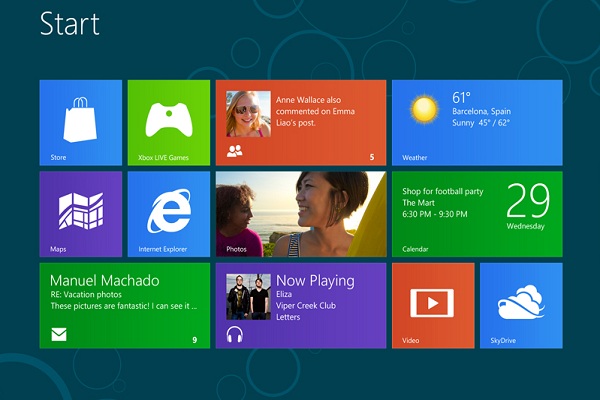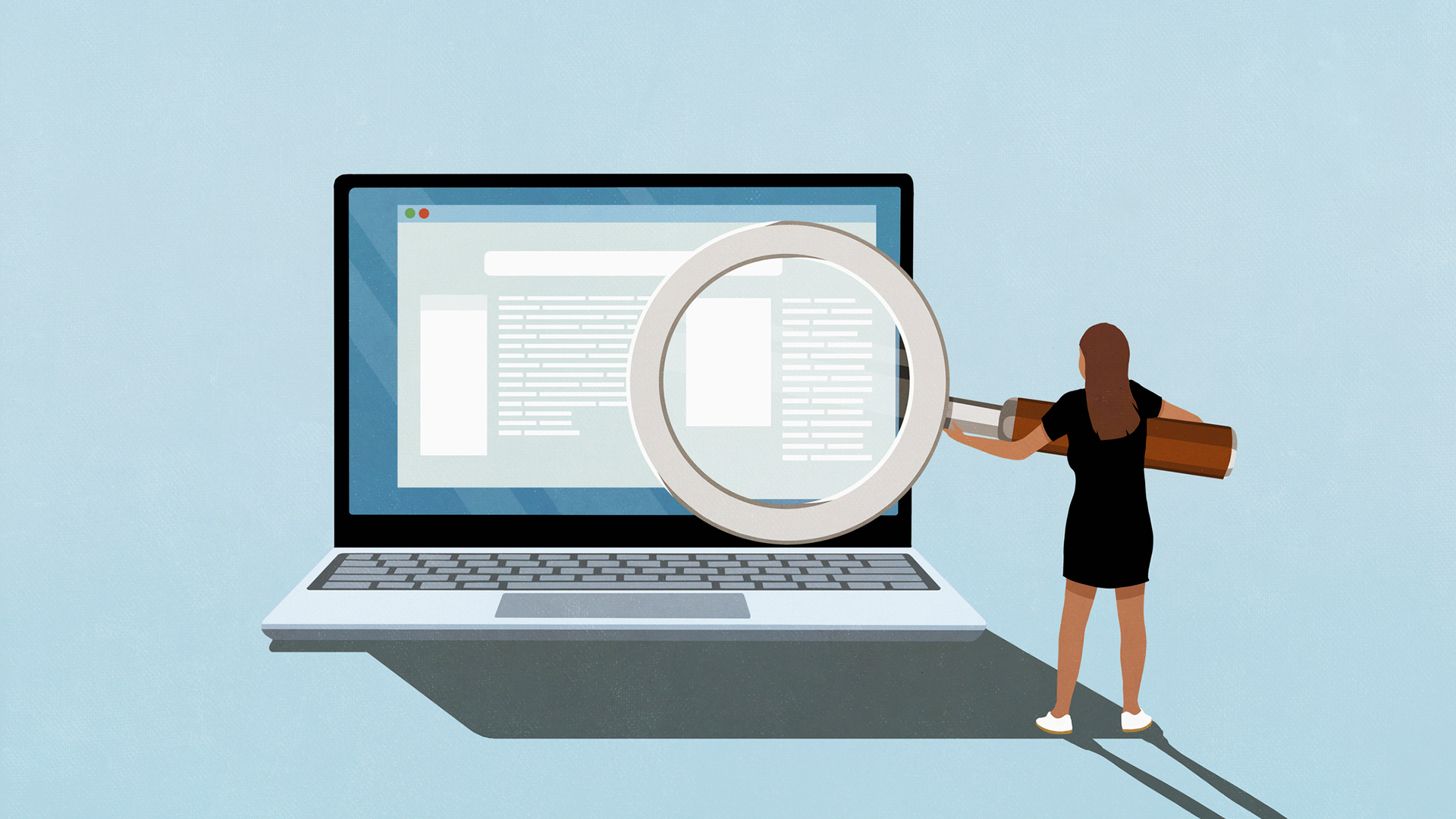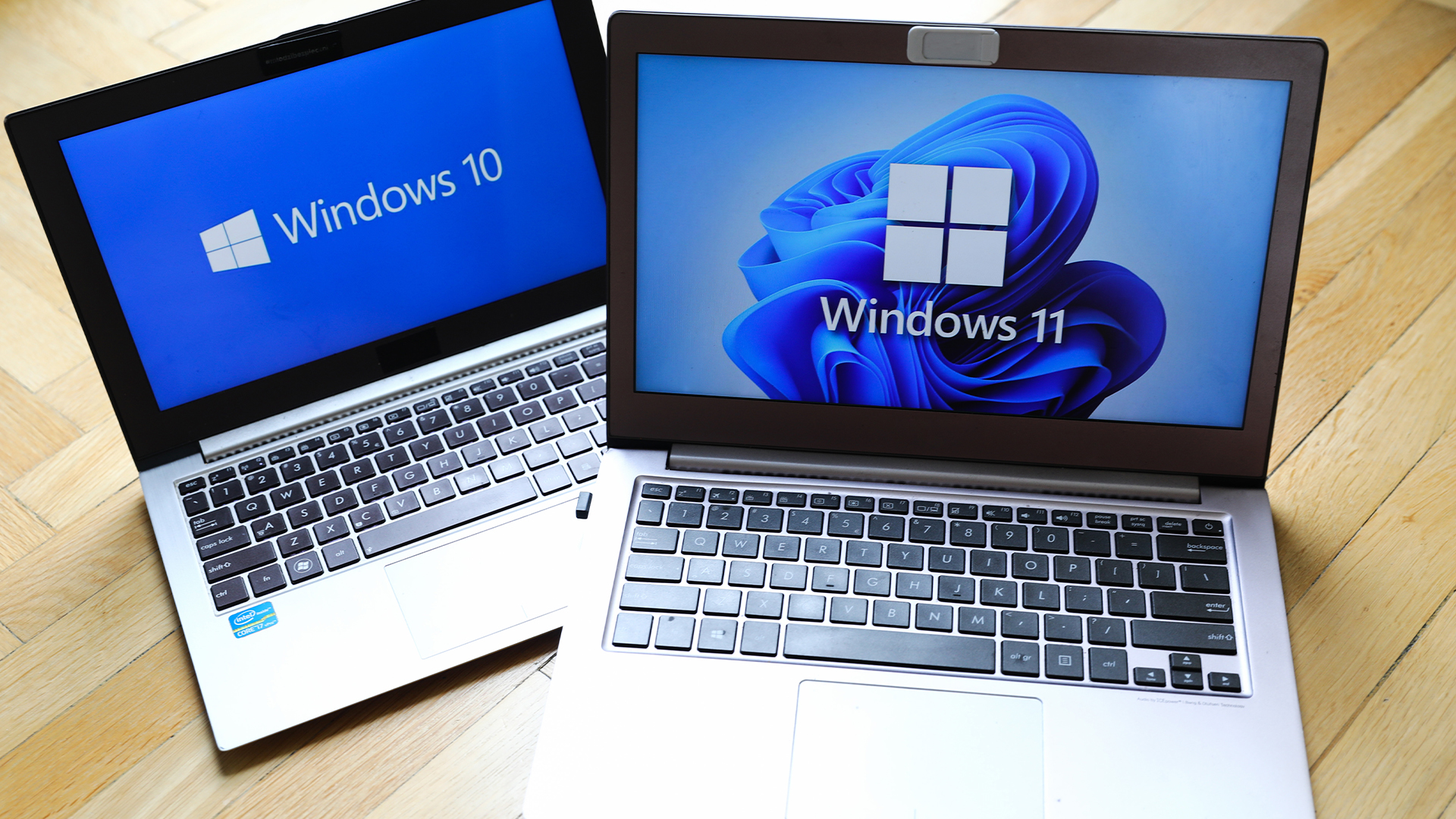
Sign up today and you will receive a free copy of our Future Focus 2025 report - the leading guidance on AI, cybersecurity and other IT challenges as per 700+ senior executives
You are now subscribed
Your newsletter sign-up was successful
Jury doubtful
Mainstream tech reviewers like the Wall Street Journal's Walt Mossberg or the New York Times' David Pogue have not yet weighed in on the third and latest "preview" of Windows 8, which became publicly available online on May 31.
The smattering of reviews on tech-centric blogs have generally praised the new look of Windows 8, but almost everyone has stressed how difficult users will find the switch.
"I've felt almost totally at sea confused, paralysed, angry, and ultimately resigned to the pain of having to alter the way I do most of my work," wrote Farhad Manjoo, technology columnist at online journal Slate, even as he acknowledged that there is a lot to love about Windows 8.
I've felt almost totally at sea and ultimately resigned to the pain of having to alter the way I do most of my work.
GeekWire -- Microsoft's hometown technology news website in Seattle -- was no kinder, featuring a video of one reader's father, completely stumped by how to get back to the Start menu. ( here )
"Bottom line, I've spent the past day feeling lost, and a little grumpy," wrote GeekWire's Todd Bishop, who has followed the software company as a reporter for more than a decade.
Sign up today and you will receive a free copy of our Future Focus 2025 report - the leading guidance on AI, cybersecurity and other IT challenges as per 700+ senior executives
"Microsoft likes to use the words fast and fluid' to describe Windows 8, but two other words keep popping to my mind: New Coke,'" wrote Bishop, referring to Coca-Cola Co's short-lived attempt to reinvent its core product in the 1980s.
Gizmodo reviewer Mat Honan praised Windows 8's "subtle elegance" and said the Metro apps were better and easier to navigate than the last test version, but added there was nothing that "bowls you over."
ZDNet reviewer Ed Bott, a previous skeptic of Windows 8, liked the "rich and polished collection of Metro-style apps," and was the only high-profile reviewer with a wholly positive reaction.
Confusion
To be sure, any great change to a system used by more than 1 billion people every day is bound to meet with resistance.
Microsoft's Vista operating system got off to a terrible start in early 2007 due to its heavy memory demands and finicky security settings, but recovered somewhat in later updates. Almost three years later, its successor, Windows 7, became the company's fastest-selling system to date, and has now racked up more than 500 million sales.
But Apple's intuitive iOS mobile system has raised expectations, both for aesthetics and ease of use.
"I would not be able to give my mother - who is 76 - Windows 8 and expect her to be productive with it," said Forrester's Johnson. "But I'm also not sure that somebody in their 30s, or even 20s, wouldn't be confused initially by the Metro interface either."
Individual consumers and potential iPad buyers, rather than corporate customers, are the primary target for the Windows 8. Many big companies are still in the process of spending millions of dollars upgrading to Windows 7.
The success of the software will depend in part on the quality and price of machines running Windows 8, which is in the hands of PC makers such as Hewlett-Packard Co, Samsung Electronics, Lenovo Group and Acer.
But even if the machines are slick, Microsoft's online Windows Store is still no match for Apple's App Store, and will probably take several years to build momentum, which in turn removes incentives to buy tablets running the new Windows.
"I really want to use Windows 8," said Cherry of Directions on Microsoft. "But I'm not sure they've gotten to nirvana. It's a stake in the road that shows us where they want to get to - I'm not sure they are able to get there in one release."
ITPro is a global business technology website providing the latest news, analysis, and business insight for IT decision-makers. Whether it's cyber security, cloud computing, IT infrastructure, or business strategy, we aim to equip leaders with the data they need to make informed IT investments.
For regular updates delivered to your inbox and social feeds, be sure to sign up to our daily newsletter and follow on us LinkedIn and Twitter.
-
 Will a generative engine optimization manager be your next big hire?
Will a generative engine optimization manager be your next big hire?In-depth Generative AI is transforming online search and companies are recruiting to improve how they appear in chatbot answers
-
 European Commission clears Google’s Wiz acquisition, citing 'credible competition' from Amazon and Microsoft
European Commission clears Google’s Wiz acquisition, citing 'credible competition' from Amazon and MicrosoftNews Regulators said there are “several credible competitors” to Google regardless of the acquisition
-
 Windows 10 extended support costs could top $7 billion
Windows 10 extended support costs could top $7 billionNews Enterprises sticking with Windows 10 after the October deadline face huge costs
-
 Tiny11 review: Windows 11 with only 2GB of RAM
Tiny11 review: Windows 11 with only 2GB of RAMReview A version of Windows 11 for older machines that don't meet the full requirements
-
 Red Hat Enterprise Linux becomes foundational operating system for Cohesity Data Cloud
Red Hat Enterprise Linux becomes foundational operating system for Cohesity Data CloudNews New strategic partnership between Red Hat and Cohesity aims to drive innovation in the data security and management space
-
 Ubuntu shifts to four-week update cycle
Ubuntu shifts to four-week update cycleNews Critical fixes will also come every two weeks, mitigating the issues involved with releasing prompt patches on the old three-week cadence
-
 AlmaLinux follows Oracle in ditching RHEL compatibility
AlmaLinux follows Oracle in ditching RHEL compatibilityNews Application binary compatibility is now the aim with 1:1 now dropped
-
 How big is the Windows 10 cliff-edge?
How big is the Windows 10 cliff-edge?ITPro Network With some comparing the upcoming Windows 10 end of life to Windows XP, we ask members of the ITPro Network for their insight
-
 Everything you need to know about the latest Windows 11 updates - from bug fixes to brand-new features
Everything you need to know about the latest Windows 11 updates - from bug fixes to brand-new featuresNews Two new cumulative updates are on the way and will be installed automatically on Windows 10 and Windows 11 machines
-
 How to download a Windows 11 ISO file and perform a clean install
How to download a Windows 11 ISO file and perform a clean installTutorial Use a Windows 11 ISO to install the operating system afresh

